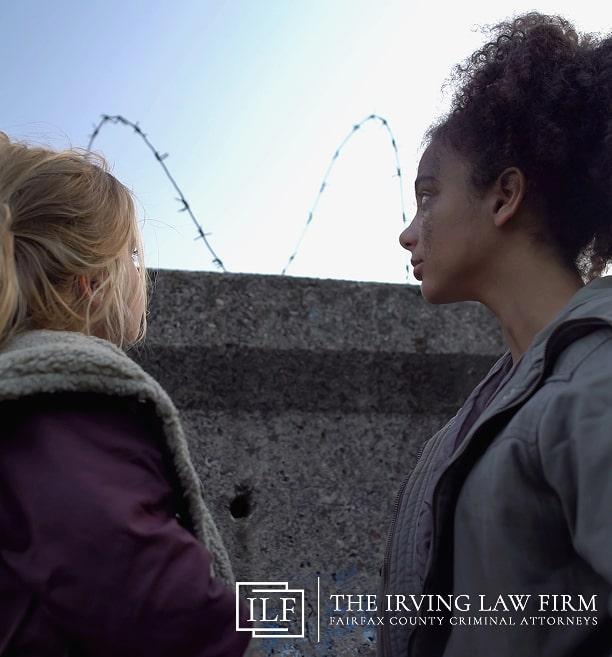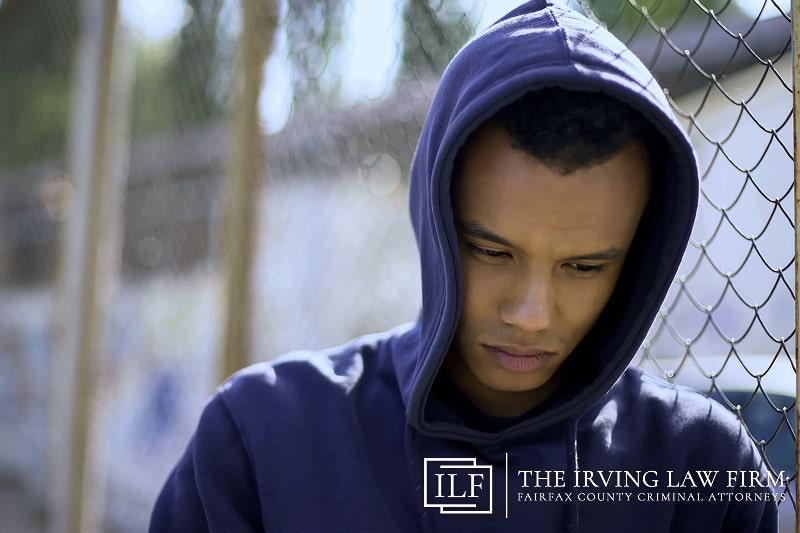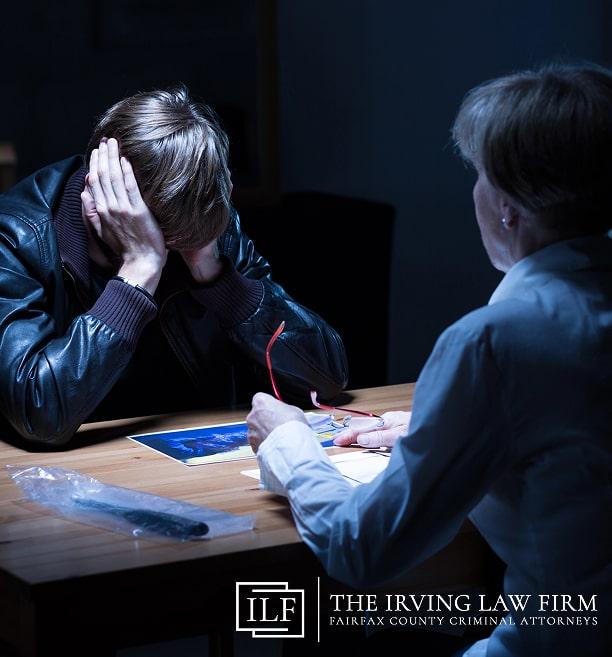Fairfax County Juvenile Defense Attorney Protects Rights
Being accused of a juvenile offense can be an emotional challenge for your child and your family. Worries about school, a criminal record, and the court process can feel too much to handle. Seeking help from a Fairfax County juvenile defense attorney and knowing how the juvenile justice system works can help bring clarity and direction.
This article covers delinquency charges, juvenile court procedures, and the long-term consequences of a record. It also emphasizes the importance of strong legal representation for minors. With the proper guidance, you can navigate the legal system more effectively and work toward a better outcome.
Juvenile Delinquency & Justice System In Virginia
Under the Virginia Code, a juvenile is anyone under 18, and delinquency refers to acts that would be crimes if committed by an adult. When a minor is accused of breaking the law, the legal system classifies the offense as a delinquency case. The Juvenile and Domestic Relations District Court (JDRDC) oversees these matters.
The JDRDC holds juveniles accountable while emphasizing rehabilitation and protecting their privacy. It safeguards the identities of minors and their families and ensures confidentiality throughout the legal process. Unlike adult courts, juvenile trials do not involve juries. Instead, a judge alone determines the outcome.
The juvenile justice system uses different terminology—minors are not “found guilty” but are instead “adjudicated delinquent.” Sentencing options vary, ranging from diversion programs and probation to juvenile detention in more serious cases. The goal is not just punishment but rehabilitation and support to help your child avoid future offenses.
Understanding how the court approaches delinquency proceedings is key to protecting a minor’s future. Recognizing common underage crimes in Fairfax County can offer further insight into your son or daughter’s challenges.

Common Juvenile Offenses In Fairfax County
- Alcohol-Related Offenses – Underage possession, consumption, or purchasing alcohol with a fake ID.
- Theft & Property Crimes – Shoplifting, vandalism, trespassing, or destruction of property.
- Assault & Battery – Physical altercations, including school fights, bullying-related incidents, or conflicts in public places.
- Disorderly Conduct – Public disturbances, school disruptive behavior, or resisting lawful authority.
- Traffic Violations – Reckless driving, driving without a license, or street racing.
- Drug-Related Offenses – Possession of marijuana or other controlled substances, as well as drug distribution.
Each case is handled based on its circumstances, the young one’s history, and the court’s assessment of appropriate intervention. Knowing how a case progresses in the juvenile justice system is essential.
How Cases Progress Through Juvenile Courts
The juvenile justice system follows a structured process for handling delinquency charges, with each stage influencing the outcome. Understanding these steps can guide you through the process and know what will happen as your child goes through the court system.
Juvenile Intake Process
When a juvenile is involved in an offense, the case is first reviewed through Juvenile Intake. An intake officer assesses the situation and decides whether to:
- Divert the case to a juvenile diversion program or social services.
- Refer the juvenile to the Alternative Accountability Program (AAP) as a pre-court resolution.
- File a petition, leading to a formal court hearing.
Detention is only considered if your juvenile’s danger to others or property is a flight risk or violates prior release conditions.
Taking A Juvenile Into Custody
Law enforcement may take your child into custody under specific legal conditions. These conditions apply when a judge or intake officer issues a detention or shelter care order. They also include situations where an officer witnesses a crime or has probable cause for a felony-level offense.
Misdemeanors such as shoplifting, assault and battery, or carrying a weapon on school property may also warrant custody. Officers must promptly inform a legal guardian and protect the minor’s rights. Custody decisions prioritize rehabilitation, with detention used only when necessary for safety or compliance.
Interviewing & Questioning
Law enforcement questioning of juveniles is subject to strict legal protections to safeguard their rights. Officers must consider the minor’s age, comprehension level, and legal status before conducting an interview. How officers question a juvenile depends on whether they are in custody:
- Non-Custodial Questioning – If a minor is not under arrest or in custody, officers are not required to read Miranda rights. The minor is typically informed that they are free to leave and are not obligated to answer questions.
- Custodial Questioning – If in custody and subject to interrogation, officers must read Miranda rights and notify a parent or guardian before questioning for certain offenses.
Failure to follow these procedures may result in statements being ruled inadmissible in court. Proper legal guidance during questioning can help protect your young one’s future in juvenile court.
Filing Petitions & Charges
A petition is a formal document that charges your child with an offense. Officers can file petitions in person, via email, or through a digital portal.
If the juvenile intake officer declines to file a petition due to a lack of probable cause, the officer may appeal the decision to a magistrate.
In felony or Class 1 misdemeanor cases, the Commonwealth’s Attorney can review and potentially override the intake officer’s decision. This ensures that serious offenses undergo proper judicial consideration.
Release Or Detention
Most juveniles are released to a parent, guardian, or responsible adult while awaiting court proceedings. However, juvenile detention may be used as a last resort if no responsible adult is available or the minor is deemed a danger to the community. The court prioritizes alternatives like supervised release whenever possible.
Court Hearings & Dispositions
Once a juvenile case reaches court, a judge evaluates the evidence and determines the appropriate outcome. The judge considers factors such as your child’s background, the severity of the offense, and the likelihood of rehabilitation before ruling.
If your son or daughter is adjudicated delinquent, the case moves to the disposition phase, the juvenile equivalent of sentencing. Disposition aims to prevent future offenses while addressing the underlying causes of a minor’s behavior. A formally adjudicated delinquent may face probation, community service, or detention.
Notable Cases & Status Offenses
Certain cases, such as truancy, running away, or being a child who needs services, are classified as status offenses. Instead of prosecution, these cases are often referred to social services or other support agencies. The legal system aims to address underlying issues rather than impose criminal penalties.
Each stage of the delinquency proceedings shapes your child’s future. A juvenile criminal record can have lasting effects, making exploring options for minimizing long-term consequences essential.
The Lasting Impact Of A Juvenile Record
A juvenile record can follow your young one long after their case is resolved. While the juvenile court focuses on rehabilitation, records of delinquency proceedings may still affect future opportunities. Your family needs to understand the potential consequences.
Juvenile records remain confidential but are accessible to specific agencies. Law enforcement, courts, and government entities review these records to determine program eligibility or security clearances. However, if a court tries a minor as an adult, the record becomes public, creating obstacles for employment, education, and military enlistment.
Juvenile records can sometimes be expunged, but the eligibility depends on the nature of the offense. Expungement erases the record, treating the offense as if it never happened. A minor’s rights attorney can assess your child’s qualifications and guide the expungement process.
Action to clear a record can remove obstacles that might otherwise limit a young person’s future. Legal guidance is often key in handling these matters. The proper legal representation for minors can help reduce the long-term consequences of a juvenile offense.
Why You Need A Fairfax County Juvenile Defense Attorney
The juvenile justice system is structured differently from adult courts, but that does not mean the process is easy to handle. A minor defense attorney is critical in protecting your child’s future and can bring invaluable benefits in resolving a case.
- Protects Your Child’s Rights: Juveniles have specific legal protections, including the right to an attorney, remain silent, and a fair hearing. A Fairfax juvenile defense lawyer ensures these rights are upheld at every stage.
- Guides Families Through the Court Process: The Fairfax County juvenile court system follows unique procedures, from delinquency proceedings to juvenile sentencing. An attorney explains each step and helps families make informed decisions.
- Builds a Strong Defense: Whether arguing for juvenile diversion programs, disputing evidence, or challenging witness testimony, a lawyer develops a defense strategy tailored to your minor’s situation.
- Minimizes Consequences: A skilled attorney can negotiate alternatives to harsh penalties, such as probation for minors, community service, or counseling instead of juvenile detention.
- Advocates for Rehabilitation Over Punishment: The juvenile court aims to rehabilitate, not punish. A youth crime lawyer can push for solutions focusing on education and behavior correction rather than long-term consequences.
- Negotiates With Prosecutors: In some cases, a lawyer can work with prosecutors to reduce charges or dismiss a case altogether, especially if your child is eligible for diversion programs.
The right legal approach can help protect your son or daughter from lasting consequences. To secure advantageous outcomes, choosing a Fairfax juvenile defense law firm with experience in the local juvenile court is essential.
Fairfax County Criminal Attorneys Champions Justice For Minors
A juvenile offense can turn your family’s world upside down. You may worry about your child’s future, while they may not fully grasp the situation’s seriousness. Our team at Fairfax County Criminal Attorneys recognizes that the legal system can feel burdensome. That’s why we provide parents and their young ones with clarity, guidance, and unwavering defense.
We believe that one mistake should not define a child’s future. Our legal team works tirelessly to ensure juveniles receive fair treatment, advocating for rehabilitation programs and alternatives whenever possible. From fighting for case dismissals to negotiating juvenile diversion programs, we explore every legal avenue to protect our clients.
Our lawyers understand that every case is unique, so we tailor our approach to fit each situation. Whether your child is facing underage offenses, status violations, or more serious charges, we are prepared to protect their rights. With extensive experience in delinquency cases, our firm is committed to helping young individuals secure a second chance.
Juvenile delinquency includes acts committed by minors that are legally considered crimes for adults. These cases are handled through the juvenile court system, which prioritizes rehabilitation over punishment. Understanding juvenile law, the legal process, and the impact of a delinquency record is critical for families navigating the system.
At Fairfax County Criminal Attorneys, we are committed to defending your child during challenging times. Whether your child needs representation in juvenile court or assistance with record expungement, we are here to help. The right legal approach can open doors for a better future, let’s work together to protect it!

We are on a a mission at Fairfax County Criminal Attorneys to provide exceptional services and client satisfaction.
What Our Clients Say About Us
At Fairfax County Criminal Attorneys, we know that when you call us, your freedom, your reputation, and your future are at stake. You’re not just facing charges — you’re facing a system that can feel overwhelming and unforgiving. That’s why we step in with relentless defense and powerful advocacy from day one.
We don’t back down, and we don’t leave you to fight alone. Every client we represent receives our full force, our genuine compassion, and a tailored strategy built to protect what matters most to you. With decades of battle-tested experience and a fierce commitment to justice, Fairfax County Criminal Attorneys stands ready to defend you, restore your hope, and help you take back control of your life.
I couldn’t ask for a better team!
Absolutely wonderful experience with The Irving Law Firm! I had an immediate need and they sprung right into action! I couldn’t ask for a better team!
Les Rizzo,
I will keep using them for anything that comes up!!!
John and his team do the best for any client they have. I have been using this firm for over 10 years now and I will keep using them for anything that comes up!!!
Justin Cornwell,
they resolved my issue quickly
Very friendly office (staff and lawyers). They listened to me and understood my situation. They were very knowledgeable and they resolved my issue quickly and effectively with the best possible outcome.
Steven Silber,
I would 100% use them again if I ever need another lawyer
Absolutely amazing! Services were very easy and communication was great. I had one of their lawyers represent me and she did an amazing job! I would 100% use them again if I ever need another lawyer.
Cheyenne Dinger,
Thanks For The Comfort Of Having A Great Law Firm To Lean On!
John Irving and the rest of the team at Irving Law Firm have provided exceptional service for all of my needs on multiple occasions. I would not recommend anyone else. They take the time to explain what will happen, keep you updated, and make sure to provide the best possible help they can. Thanks for the comfort of having a great law firm to lean on!
Pro Edge Painting Office,
The Outcome Was Better Than We Could Have Hoped For
John and The Irving Law Firm handled our case with the utmost professionalism and dignity. We are grateful for John’s knowledge and his great reputation in the area. The outcome was better than we could have hoped for and, should we ever have need for legal services again, The Irving Law Firm will be our first call.
Robin Tomlin,

